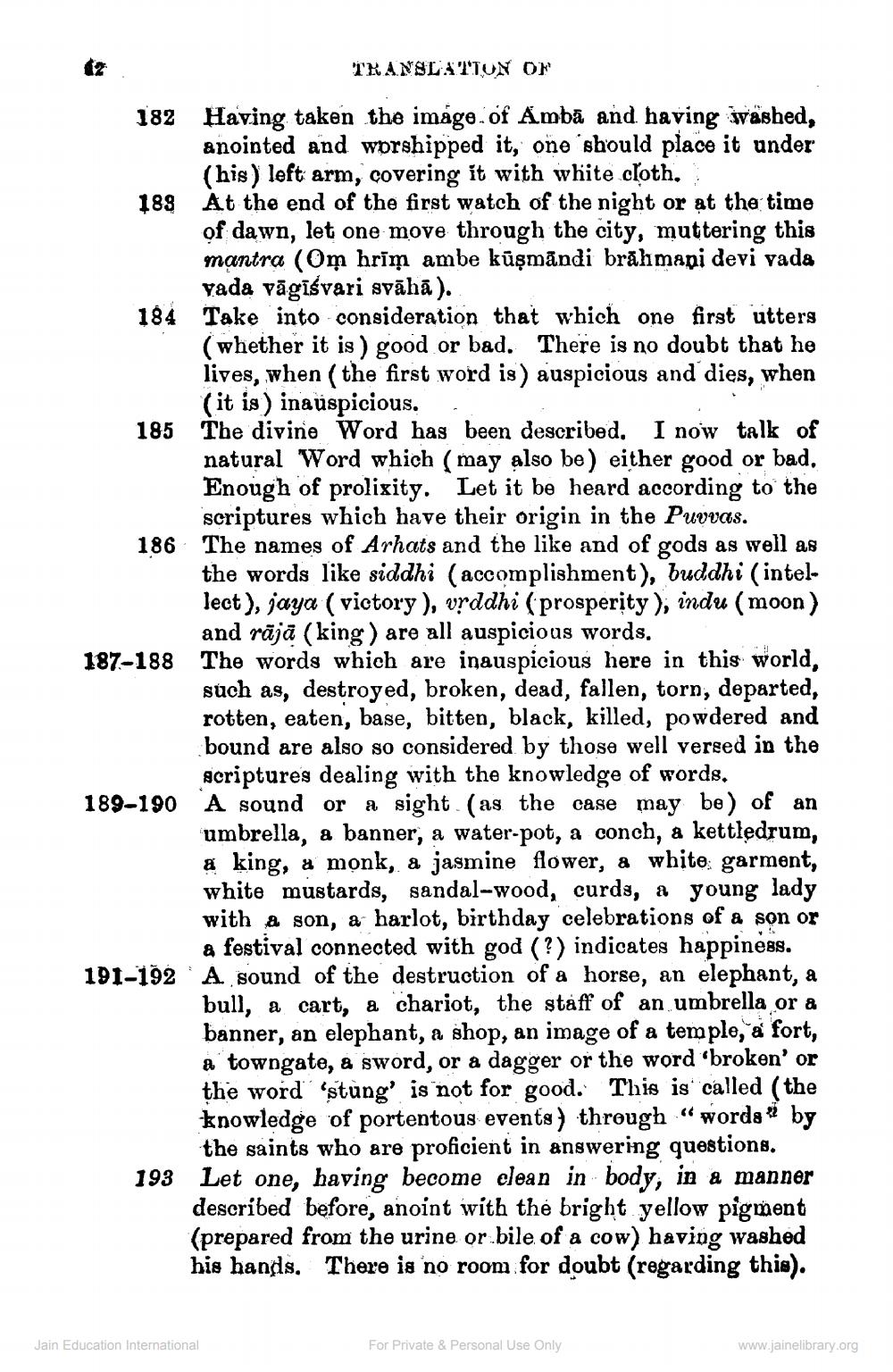________________
TRANSLATION OF
182 Having taken the image. of Ambā and having washed,
anointed and worshipped it, one should place it under
(his) left arm, covering it with white cloth. 188 At the end of the first watch of the night or at the time
of dawn, let one move through the city, muttering this mantra (Om hrim ambe kūşmāndi brāhmapi devi vada
vada Vāgīśvari svāhā). 184 Take into consideration that which one first utters
(whether it is ) good or bad. There is no doubt that he lives, when the first word is) auspicious and dies, when
(it is) inauspicious. . 185 The divine Word has been described, I now talk of
natural Word which (may also be ) either good or bad. Enough of prolixity. Let it be heard according to the
scriptures which have their origin in the Puvvas. 186 The names of Arhats and the like and of gods as well as
the words like siddhi (accomplishment), buddhi (intellect), jaya (victory), vrddhi (prosperity); indu (moon)
and rājā (king) are all auspicious words. 187-188 The words which are inauspicious here in this world,
such as, destroyed, broken, dead, fallen, torn, departed, rotten, eaten, base, bitten, black, killed, powdered and bound are also so considered by those well versed in the
scriptures dealing with the knowledge of words. 189-190 A sound or a sight (as the case may be) of an
umbrella, a banner, a water-pot, a conch, a kettledrum, a king, a monk, a jasmine flower, a white garment, white mustards, sandal-wood, curds, a young lady with a son, a harlot, birthday celebrations of a son or
a festival connected with god (?) indicates happiness. 191-172 A sound of the destruction of a horse, an elephant, a
bull, a cart, a chariot, the staff of an umbrella or a banner, an elephant, a shop, an image of a temple, a fort, a towngate, a sword, or a dagger or the word 'broken' or the word 'stùng' is not for good. This is called the knowledge of portentous events through words by
the saints who are proficient in answering questions. 193 Let one, having become clean in body, in a manner
described before, anoint with the bright yellow pigment (prepared from the urine or bile of a cow) having washed his hands. There is no room for doubt (regarding this).
Jain Education International
For Private & Personal Use Only
www.jainelibrary.org




